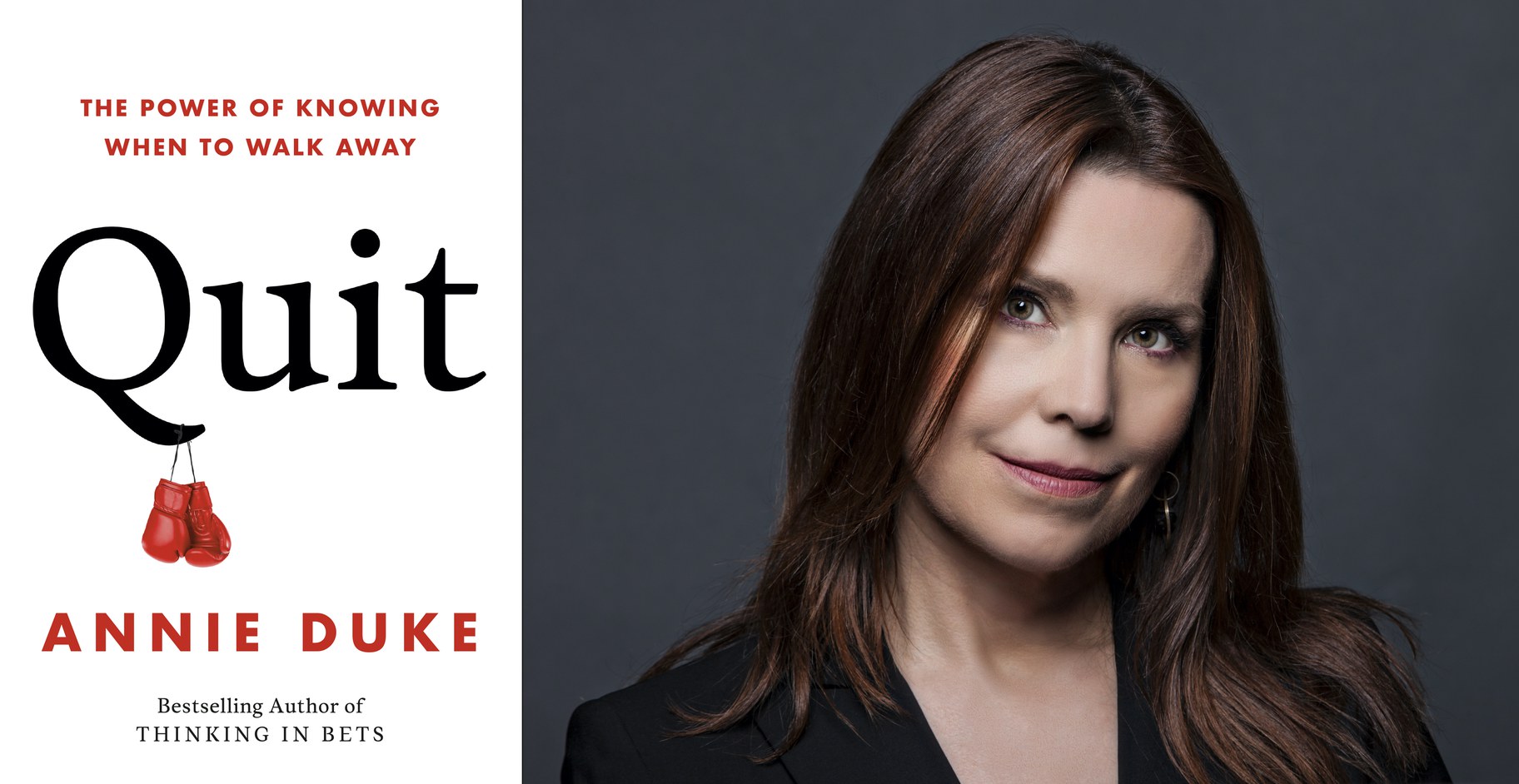When it comes to tossing in the towel and cutting our losses, the optics aren’t always good. Society values those who struggle towards a goal – grit and determination are seen as virtuous traits. History is rife with stories of successful entrepreneurs who started out penniless – or couples with idyllically long marriages, or musicians, athletes, painters who ultimately triumph – demonstrating that perseverance and endurance seem to pay off.
But there’s another perspective; actually knowing when to quit can be as important and as empowering as sticking it out. Whether it’s a dead-end job, a toxic relationship, an investment, project or a game, the decision to walk away can also bring happiness, success and opportunity.
“We don't want to stop ourselves from quitting, because we're worried about wasting what's already gone. Instead, we need to turn it on its head and say that waste is a forward looking problem,’ says Annie Duke. “In other words, do I want to wake up 10 years from now still in this relationship? Do I think that it’s going to bring me happiness and that’s true whether it’s a relationship or a job.”
Jonathan Bastian talks with Duke about how playing professional poker helped develop her decision making skills; evaluating objectively when it was worthwhile sticking or quitting. Being “too optimistic” also can impact the decision to quit. And when you lose the ability to be objective and to see the signs - the tendency is to stick it out.
“When you're on a hot streak,” Duke says, “you can overestimate how good you are.”
So how do we know when to quit? Duke explains there are several strategies for determining whether something is worthwhile or not, including “kill criteria.”
In “Quit: The Power Of Knowing When To Walk Away,” author Annie Duke explains why we’re psychologically biased to grit things out for too long, despite clear signs that we should quit – whether it’s a toxic relationship, or a dead-end job. Why does our culture equate quitting with failure? Are there strategies to make us better quitters? Annie Duke explains why we’re hard. Photo courtesy of Annie Duke.
“The strategy, which is really helpful is a think ahead strategy; to set what I would call kill criteria.” says Duke. “If we know that after we make a decision to start something, that we're not going to process, particularly rationally the signals that might tell us that we should stop, maybe we should think about what those signals are in advance, write them down and commit in advance to quitting when we see those signals.”
Often it’s fear of the unknown, Duke says, that keeps us in a toxic relationship or a dead end job. We need far more courage to call it quits than to stick it out.
“We think about sticking to things as heroic and courageous but I actually think that quitting things is very often the more courageous act. Because when we quit things, we are left with those “what ifs.” What if I kept going, maybe I could have made it work, right? And we're gonna have to live with that for the rest of our lives,” says Duke. “And when we do quit, we know that people are going to question this decision – why'd you walk away? Maybe you're weak willed? But when we stick to things, we're going to get the certainty that we desire and we know everybody's going to admire us for it. So which is the more heroic thing to do?”
Delve deeper into life, philosophy, and what makes us human by joining the Life Examined discussion group on Facebook.
